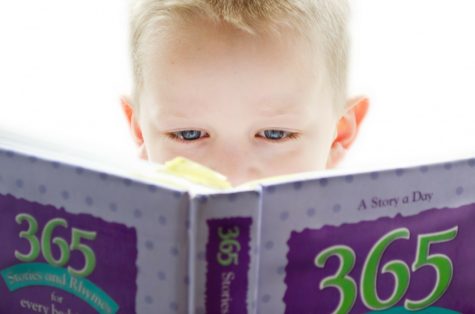
CINCINNATI — Reading stories to children before bedtime is usually a surefire segue to sleepiness without much fuss, but the benefits can go beyond the pillow — with a little extra interaction. A new study finds that having a young child actively participate in storytime can “turbocharge” his or her brain.

The study, led by researchers at Cincinnati Children's Hospital Medical Center, shows that kids' brains enjoy a cognitive “boost” when they're just as much a part of the presentation of the story — even by simply turning the pages — as their parents.
Twenty-two 4-year-old girls took part in the study, with researchers examining functional MRI scans of their brains while their mothers read them stories. Those who were more involved in the storytelling exhibited far greater brain activity than those who didn't.
The authors point to the engagement from “dialogic reading” as the spark behind the brain boost.
“The takeaway for parents in this study is that they should engage more when reading with their child, ask questions, have them turn the page, and interact with each other,” says lead author Dr. John Hutton, a pediatrician at the hospital, in a press release. “In turn, this could fuel brain activation-or ‘turbocharge' the development of literacy skills, particularly comprehension, in preschool aged children.”
In the fMRI scans, the researchers specifically noticed increased activity in the right side of the cerebellum, the portion of the brain that controls cognitive skills such as memory and learning — especially when it comes to language — and other executive functions.
“Our findings underscore the importance of interventions explicitly addressing both parent and child reading engagement, including awareness and reduction of distractions such as cellphones, which were the most common preventable barrier that we observed,” says Hutton.
Cause-and-effect was not determined when it came to the results confirmed by the fMRI scans, but the researchers say future studies should start with children from infancy so that scientists can determine factors that play into brain development.
The study was published today in the journal PLOS One.











“Cause and effect was not determined...” well then it's pretty stupid to recommend that parents take a particular course of action, then, isn't it?